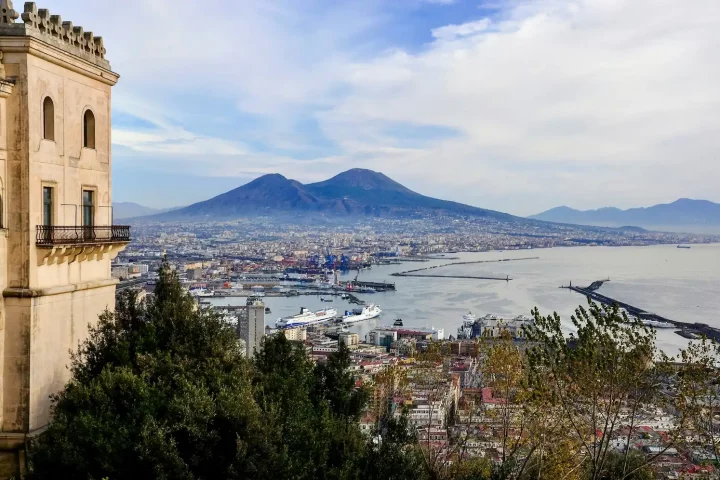“Napoli-New York” is a film set in the aftermath of World War II. Amid the ruins of a poverty-stricken Naples, young Carmine and Celestina struggle to survive by supporting each other.
One night, they stow away on a ship bound for New York to live with Celestina’s sister, who emigrated years earlier. The narrative is deeply rooted in the post-war period, highlighting the harsh realities faced by many during this time.
The film offers a glimpse into the past, recreating the period of Italian immigration to the United States, a phenomenon that rose between the late 19th and early 20th centuries. Economic struggles, political instability, and the allure of a better life propelled many Italians to explore new horizons in America.
Italian immigration in “Napoli-New York”
As Italian immigrants made their way to the United States, they faced numerous challenges as they adapted to their new lives. Navigating a new culture, overcoming language barriers, and often enduring harsh working conditions were some of the obstacles they encountered.
Yet, despite these difficulties, Italian immigrants made significant contributions to American society. They brought rich cultural traditions, culinary arts, and a strong sense of community. Over time, they established themselves as a vital part of the American fabric, influencing everything from cuisine to music.
Set in the backdrop of World War II, “Napoli-New York” provides a reminder of the profound impact the war had on Italy, leaving the country in a state of devastation.
The Italian population faced numerous challenges, including food shortages, destroyed infrastructure, and economic instability. The post-war period was marked by efforts to rebuild the nation, both economically and socially.
Take advantage of specialized assistance to secure your passport for a borderless future.
Tracing roots: Italian citizenship through ancestry
The immigration story depicted in “Napoli-New York” resonates with the current interest in Italian citizenship. Many descendants of Italian immigrants are now seeking to reclaim their heritage and gain the benefits of dual citizenship.
Italian citizenship offers numerous advantages, including access to the European Union, enhanced travel opportunities, and the ability to connect with one’s cultural roots.
Italian citizenship is based on the principle of jus sanguinis (right of blood), which allows individuals to claim citizenship through an Italian parent or grandparent born in Italy. Alternatively, eligibility may apply if one’s Italian parent—not grandparent—resided continuously in Italy for at least two years.
In both cases, it is essential that the Italian ancestor held exclusive Italian citizenship at the time of their death.
To obtain citizenship by descent, applicants must provide documentation such as birth and marriage certificates that trace their family line back to an Italian citizen.
As of 2025, with the enactment of Law No. 74/2025, Italian consulates and municipalities have ceased accepting applications for citizenship by descent. All administrative procedures are set to be centralized under a newly established governmental body; however, its structure, operational framework, and specific guidelines are still pending.
As a result, all existing consular and communal queues were formally dissolved, leaving judicial proceedings as the only available pathway to obtaining Italian citizenship.
How a specialist consultancy can help
Obtaining Italian citizenship can be a complex process and specialized services such as those offered by io.citizen can provide invaluable assistance. These services guide applicants through the legal and bureaucratic requirements, ensuring a smooth and efficient journey to dual citizenship.
For many U.S. residents, Italian citizenship represents not only a legal status but also a meaningful connection to their ancestral homeland.






